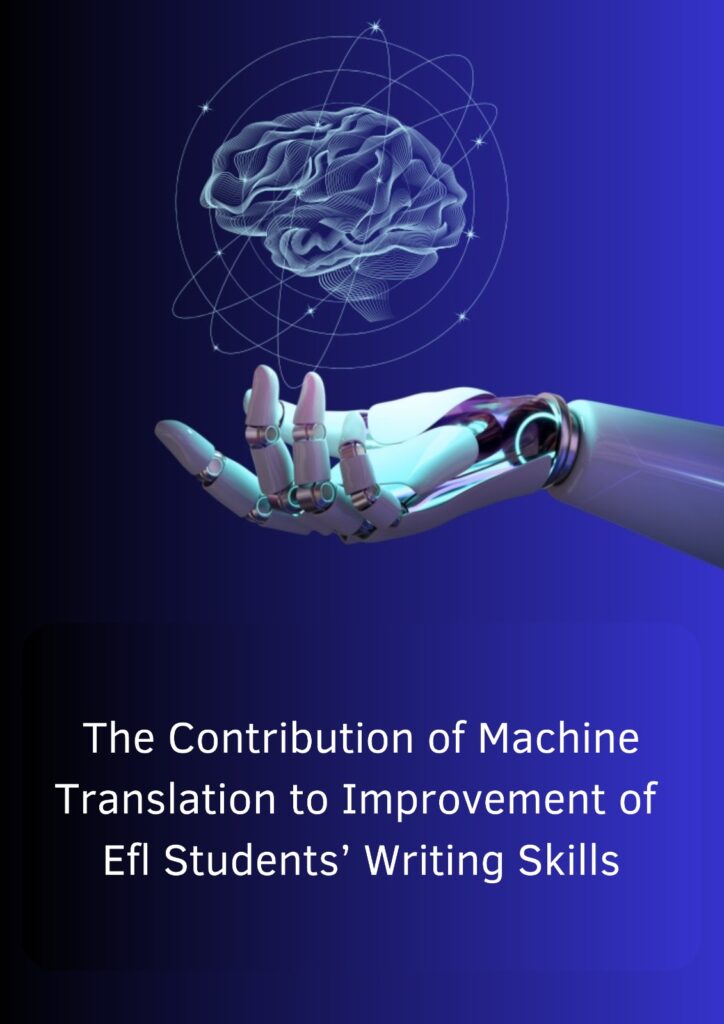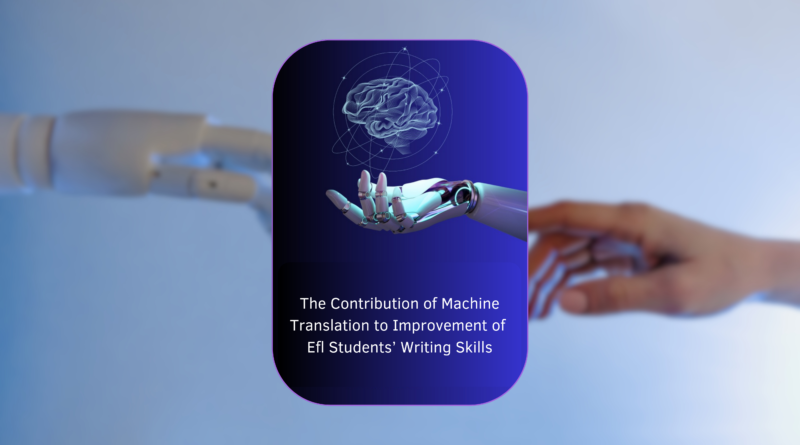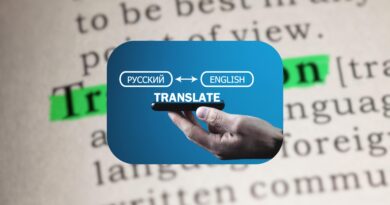The Contribution of Machine Translation to Improvement of Efl Students’ Writing Skills
The Contribution of Machine Translation to Improvement of Efl Students’ Writing Skills
I wrote to submit our manuscript entitled ‘The Contribution of Machine
Translation to Improve EFL Students’ Writing Skills’ for TRANS/LATION/NATION. During my research, I focused on the effect of machine translation on writing skills in classrooms where English is taught as a foreign language with the help of my supervisor, Asst. Prof. Muhammed BAYDERE. I aimed to determine the effect of machine translation on writing skills in the classes where English is taught as a foreign language. In Türkiye, I concluded that there is no research on the use of machine translation in the classroom focusing on students’ writing skills and how students learn English who can be successful. In this context, I tried to contribute to research on the inclusion of machine translation in the courses as a pedagogical tool in literature. There were two questions I focused on to research throughout the process. The first question is ‘How much can the errors in language use in the texts translated by students from Turkish to English be reduced by using the machine translation outputs?’. The second question is ‘What are the opinions of the students about the use of machine translation in the English writing lesson and its contribution to writing skills?’. While doing this research the fact that my work is one of the very limited studies conducted in the context of Türkiye in this field and that it can contribute to the literature and be a source for more studies has always been one of the most important reasons that motivated me. Also, while we talk so much about quality education there are very few studies that actually prove it.

Therefore, I am very happy that this study can serve the sub-field of quality education (4), one of the Sustainable Development Goals determined by the United Nations. I also wanted to learn how using machine translation can make language skill development processes more effective and efficient and to be able to present its effects to everyone. Therefore, while doing this study I tried to think of it not only as research but also as a guide that could clear the question marks in my mind. I collaborated with 26 volunteer students studying at Karadeniz Technical University preparation class in 2022-2023 academic year. I followed a parallel method to Lee’s (2019) method which examined the effect of machine translation on English writing skills for Korean students. Throughout my research, the process was carried out by following the following sections:
Identification of volunteer students (1), selection of a TEDx talk named ‘Learning a language? Speak it like you’re playing a video game’ by Marianna Pascal (2), writing 350–450 words of Turkish text (3), elimination of grammatical and semantic problems (4), translation of texts into English without using MT (5), translation of texts into English with MT (6), completion of students’ translations by editing MT outputs (7), examining the numerical differences between errors comparison of students’ latest versions with their first translations (8), interviews with students (9). Moreover, I examined the possible contributions of machine translation to the students’ self-learning process. In reality, students will be able to receive a free, equal, and high-quality education as well as create successful learning outcomes on their own by assessing if a new tool and mechanism for self-learning processes are feasible.
To sum up, the data were examined. In the initial application, an average of 1,846 errors were found in the texts of 26 students. However, after the revision, the number of errors decreased to 1,088. The difference between the two was 758. This decrease in the number of errors was determined to be 41.06% on average. In the initial application, an average error rate of 16.30% was found in the texts of 26 students. However, after the revision, the error percentage decreased to 9.19%. The difference between the two was 7.11%. The contribution of the process to the decrease in the error percentage was calculated as 43.61%.
Furthermore, when the students’ interviews were examined, it was seen that machine translation supports students’ independence and critical thinking skills, helps detect errors, and saves time. Machine translation is considered a quality educational tool that contributes to the language learning process of students.
In summary, this study presents findings to understand the effect of machine translation on the language learning process and to reflect students’ experiences. The findings reveal that machine translation helps students improve their language skills, supports critical thinking skills, and accelerates the learning process. The results of this study can be an important resource for educators and researchers who want to understand the effect of technology on the language learning process and improve it.





Pörfect